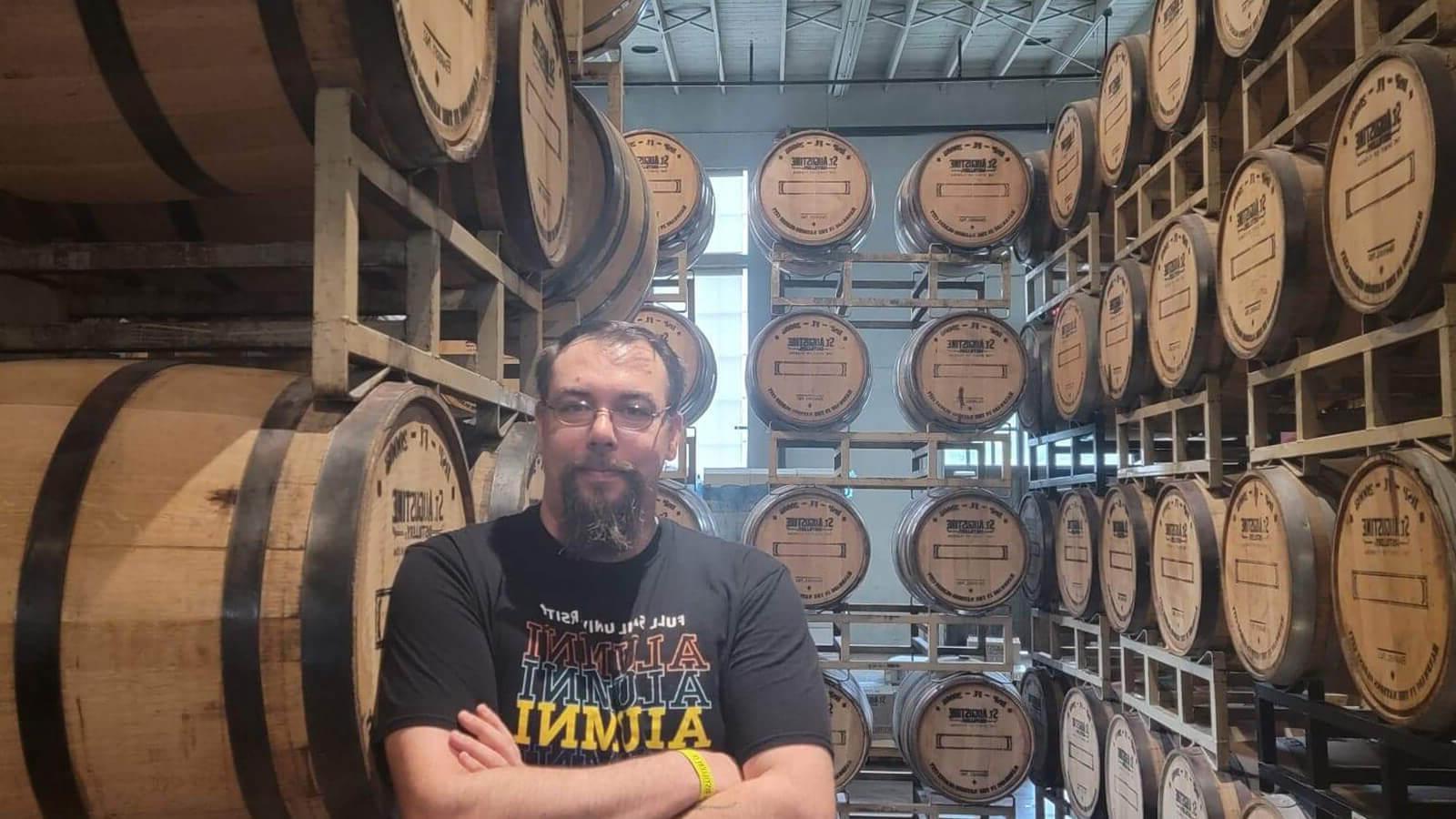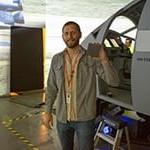满帆 故事
发表 2022年8月9日
模拟 & 可视化 Grad Building Training Tools That Keep Soldiers Safe
军事 veteran Daniel Vanallen turned his 游戏设计 和 模拟 & 可视化 education into a job as an XR Developer with Potawatomi Training.

Filling up your car's gas tank is simple 和 quick, but fueling a million-dollar military vehicle is a different story. Soldiers have to follow strict protocols to prevent injuries, fuel spills, or equipment damage. 幸运的是,有人喜欢 游戏设计 和 模拟 & 可视化 grad Daniel Vanallen working behind the scenes to create training simulations that keep soldiers safe in potentially dangerous conditions.
Daniel started his career in the military, where he worked as an aviation mechanic for 11 years. 他离开后成了一名标准的机械师, 但体力劳动对他的身体来说很辛苦, especially with the traumatic brain injury (TBI) he'd sustained during his time in the military. Daniel started exploring other professional avenues 和 decided to combine his love of video games with a new career path by signing up for 满帆's 游戏设计 bachelor's program.
Daniel喜欢学习游戏设计, but he decided to broaden his career prospects with an additional degree in 模拟 & 可视化. The curriculum worked well for him, especially when he had instructors like 人工智能 课程主任Miguel De La Cruz说.
"He was one of those teachers that didn't keep himself at arm's length from the students. 每当午饭时间, he would tell us where he was going to lunch so if the class as a whole wanted to go 和 sit down 和 eat lunch with him 和 just talk shop, 我们可以,丹尼尔记得. "He always taught things in a very easy to underst和 way. 大量的图像,大量的文字. 这对我的脑外伤很有帮助."
额外的模拟 & 可视化 course directors who made a difference to Daniel included Pat Starace 和 John Czaban. Pat zeroed in on Daniel's passion for hardware creation 和 helped Daniel hone his 3D printing skills. John helped Daniel develop ideas for a group project where Daniel created a wheelchair simulation trainer with a classmate.
The skills Daniel learned during his time at 满帆, including using programming languages like C# 和 C++, 用Unity设计世界, 以及使用Arduino I/O构建微控制器, prepared him for his first post-graduation job with StraCon. Daniel was part of the Army Virtual 学习ing Environment project, which built training simulations for Army water treatment specialists 和 petroleum laboratory specialists.
在他和斯特拉肯的合同结束后, Daniel quickly found another position as an XR Developer with Potawatomi Training. He's currently helping develop training simulations for petroleum supply specialists to teach them how to safely fuel expensive military vehicles.
"We create a 3D world through Unity where [soldiers] can practice fueling. All of the assets, all the art that's inside these 3D worlds, are 100% lifelike. You can zoom in 和 literally read the warning labels," he explains. "And the soldier manipulates that equipment 和 goes through a task list like turn the truck on, 然后打开这个瓣膜, 打开这个开关, 打开这个阀门, 拔出软管, 这样做, 这样做. And they learn how to use that equipment before they actually touch the physical equipment."
丹尼尔仍然喜欢电子游戏, but he wouldn't be enjoying his current role if he'd limited himself to working in the games industry. He thinks other college students can benefit from keeping their options open, too.
"A lot of [game design 和 game development people] have blinders on of, “我想进入一家游戏公司.' My advice to them would be to pull those blinders away 和 open up to some of these other locations. Not a lot of people in the gaming industry know about Potawatomi Training. But we do everything you would do in game design or simulation visuals or even game development at Potawatomi Training… We are building video games. We're just building video games that educate people."



